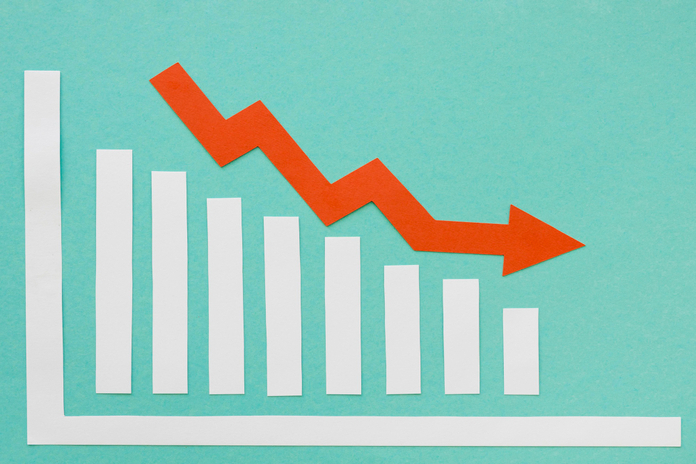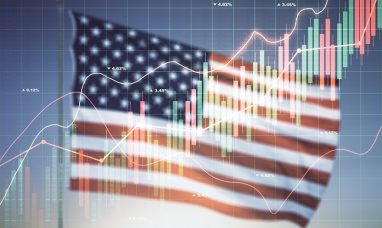The U.S. stock market took a hit on Thursday following President Donald Trump’s announcement of 25% tariffs on imported cars. The S&P 500 fell 0.5%, while the Dow Jones Industrial Average dropped 221 points, or 0.5%, early in the trading session. The Nasdaq composite was also down by 0.6%, reflecting widespread concerns over the economic impact of Trump’s auto tariffs.
General Motors (NYSE:GM) led the decline, plummeting 9.1% as analysts predicted significant cost burdens resulting from the new tariffs. Ford Motor Company (NYSE:F) fared better but still recorded a 0.8% decline. Despite Trump’s push for U.S.-based production, American automakers also stand to face challenges due to the complexity of their global supply chains.
Tesla and Rivian Show Resilience
Electric vehicle (EV) makers fared better amidst the market turbulence. Tesla Inc. (NASDAQ:TSLA) gained 0.9%, while Rivian Automotive Inc. (NASDAQ:RIVN) rose 2.9%. Analysts believe that Trump’s auto tariffs will have a lesser impact on these companies due to their domestic manufacturing focus and reduced reliance on imported components.
Elon Musk’s Tesla, which produces most of its vehicles in the U.S., remains largely shielded from the tariff impact. Rivian, another U.S.-based EV manufacturer, also benefits from minimal exposure to imported auto parts. This has led investors to view EV companies as safer bets in a market shaken by the uncertainty of trade policies.
Uncertainty Looms Over Global Supply Chains
While Trump’s tariffs aim to incentivize domestic production, they introduce complexities for automakers whose supply chains stretch across North America. UBS analyst Joseph Spak highlighted concerns about how the U.S. government will monitor parts sourced under the United States-Mexico-Canada Agreement (USMCA). Since many parts are manufactured outside the United States, tracking compliance may become a logistical nightmare.
Automakers based outside the U.S. also felt the ripple effects. Honda Motor Co. (NYSE:HMC) fell 2.5%, Toyota Motor Corp. (NYSE:TM) dropped 2%, and Hyundai Motor Co. (KRX:005380) plunged 4.3% in response to the tariff announcement.
Global Markets Respond to Tariff Concerns
Stock markets across the globe responded to the news of Trump’s auto tariffs with mixed reactions. Japan’s Nikkei 225 dropped 0.6%, reflecting declines among its automakers. Japanese Prime Minister Shigeru Ishiba voiced concerns, urging the U.S. to reconsider tariff measures on Japanese imports.
In South Korea, Hyundai’s 4.3% drop contributed to Seoul’s broader market decline. Meanwhile, Chinese markets remained relatively steady, with the Shanghai Composite rising 0.1% and Hong Kong’s Hang Seng climbing 0.4%.
Economic Impact and Future Outlook
Despite the turbulence, U.S. economic data offered some optimistic signals. Weekly jobless claims came in slightly lower than economists expected, indicating resilience in the job market. Additionally, revised data showed that the U.S. economy grew slightly faster than initially estimated in the final quarter of last year.
However, economists remain cautious. If consumer sentiment weakens due to prolonged tariff uncertainties, it could impact consumer spending and slow economic growth. Analysts hope that Trump may eventually soften his stance or introduce targeted measures that would mitigate widespread economic damage.
Treasury Yields Remain Steady
In the bond market, Treasury yields remained relatively stable despite the market’s volatility. The 10-year Treasury yield inched up to 4.36% from 4.35% the previous day, reflecting investor caution amid heightened economic uncertainty.
Conclusion: Investors Brace for Continued Volatility
As the April 2 “Liberation Day” deadline approaches, global markets are bracing for additional trade measures and Trump’s auto tariffs. While EV makers like Tesla and Rivian are better positioned to weather the storm, traditional automakers face significant challenges ahead. Investors should prepare for ongoing volatility as trade tensions continue to unfold.
As uncertainty lingers, market volatility may persist, impacting global economic stability further.
Featured Image: Freepik








